NEXUS is a joint Canada–United States program designed to reduce wait times and potentially eliminate some of the hassle at border crossings and airport security lines in both countries.
With some upfront leg work and a bit of patience, a five-year membership with NEXUS is well worth the effort for frequent travellers.
Let’s look into the many benefits of enrolling in NEXUS, including how to sign up, which credit cards offer NEXUS rebates, and why every eligible traveller should have a NEXUS card in their wallet.
What Is NEXUS?
NEXUS is a program for Canadians and Americans that pre-approves low-risk travellers for cross-border entry.
Those who enroll in the program will benefit by entering the countries with greater ease by using automated self-serve kiosks and passing through separate border lines.
The program offers benefits to NEXUS cardholders who are entering Canada or the US by air, land, and sea.
Entering Canada by Air
NEXUS cardholders can bypass potentially long security lines by going directly to NEXUS self-serve kiosks or NEXUS eGates after landing in Canada from outside the country.
Skipping potentially long lines applies to travellers entering into Canada from anywhere in the world, not only from the United States.
There are nine Canadian airports equipped with NEXUS kiosks or eGates in Canada, located at the following airports:
- Vancouver International Airport (YVR)
- Calgary International Airport (YYC)
- Edmonton International Airport (YEG)
- Winnipeg James Armstrong Richardson International Airport (YWG)
- Toronto Pearson International Airport (YYZ)
- Billy Bishop Toronto City Airport (YTZ)
- Ottawa Macdonald-Cartier International Airport (YOW)
- Montreal-Trudeau International Airport (YUL)
- Halifax Stanfield International Airport (YHZ)
While functioning almost exactly the same as a regular non-NEXUS arrival kiosk, NEXUS kiosks and eGates do not require you to fill out the tedious E311 Declaration Card, required of all other passengers.
NEXUS cardholders travelling with non-NEXUS cardholders would have to use the NEXUS kiosk or eGate separately, as they’re not allowed to bring a non-NEXUS companion through with them.
While anyone with something to declare is still able to use the NEXUS kiosks or eGates, they would have to speak with an officer after using a kiosk or eGate. Meanwhile, those with over $10,000 worth of currency and monetary instruments to declare cannot use NEXUS kiosks or eGates and must use the regular gates.
CATSA/ACSTA Verified Traveller Line
The Verified Traveller line is a very strong NEXUS benefit for those flying domestically within Canada.
Not to be confused with the “Trusted Travelers Program,” a US program of which NEXUS is a part, the CATSA/ACSTA Verified Traveller line allows NEXUS cardholders, military members, and flight crew a simpler and faster security screening in Canadian airports.
NEXUS members are able to bypass the regular screening line, and instead join the Verified Traveller line.
Eligible travellers have a streamlined experience, and may keep their shoes, belts, and light jackets on, keep small items in their pockets, and leave compliant liquids, aerosols, and gels in their carry-on bags.
NEXUS cardholders aren’t required to remove any laptops from their carry-on (except on transborder flights to the US), and must still pass through X-ray screening.
Where Verified Traveller screening lines are not available, those who would have otherwise benefited will still receive front-of-the-line service, but will have to follow regular screening procedures.
For domestic and international flights, co-travellers 17 years or younger, as well as 75 years and older, may accompany anyone who is eligible for Verified Traveller access. For transborder flights, any co-traveller may accompany you, regardless of age.
Entering the US by Air
Similar to NEXUS cardholders entering Canada, those entering the US may also bypass potentially long lines.
That’s because your NEXUS card also provides access to Global Entry, which allows expedited entry upon entering the US by air.
Whether you’re entering the US via Canadian pre-clearance locations or from another international destination, you’ll use Global Entry kiosks, which are very similar to NEXUS kiosks.
We’ll discuss more about the various similarities and differences between NEXUS and Global Entry below.
TSA PreCheck
As an additional benefit, because NEXUS confers Global Entry benefits, this means that all NEXUS members automatically get access to TSA PreCheck.
Currently available at more than 200 airports across the US with more than 90 airlines participating in the program, TSA PreCheck allows for further benefits for travellers flying out of the participating US airports to any domestic or international location.
TSA PreCheck benefits include the use of TSA PreCheck “fast lanes” where applicable. Furthermore, and certainly of great benefit to frequent flyers, members do not need to remove shoes, belts, allowable liquids, laptops, or light jackets while going through screening at security.
Note that TSA PreCheck is strictly limited to departures out of US airports. It isn’t applicable to travellers leaving from or arriving at a Canadian airport.
Unlike the NEXUS program, children aged 12 and younger may use the TSA PreCheck benefit while travelling with an eligible parent or guardian.
Children aged 13 to 17, who do not have TSA PreCheck, may find it indicated on their boarding pass if they are on the same reservation as a parent or guardian who is a member of the program. Otherwise, they would not be eligible for TSA PreCheck benefits.
To enjoy TSA PreCheck benefits, all you have to do is enter your NEXUS card number, called your “PASS ID number,” as your “Known Traveller Number” when you make your next flight reservation. This nine-digit number is located on the back of your NEXUS card.
When you receive your boarding pass, written on it will some form of a TSA PreCheck indicator. It comes in various forms, such as TSAPRECHK, TSA PRE, or TSA PreCheck®. Any of these grants you the full TSA PreCheck benefits.
Entering Canada and the US by Land
NEXUS members crossing the Canada–US border by land may use dedicated NEXUS lanes in order to skip the longer lines in the regular lanes.
There are 20 Canada–U.S. border crossings with designated NEXUS lanes. Not all have NEXUS lanes on both sides of the borders.
More information, including the hours of operation and temporary closures, can be found on the CBSA website.
There are a few important exceptions to be mindful of when trying to use a NEXUS lane with your NEXUS card:
- Similar to entering Canada by air, those travelling with $10,000 or more cannot use the NEXUS lane while entering Canada.
- Travellers entering the US who are over their personal exemption or entitlement cannot use the designated NEXUS lane.
- Those travelling with non-NEXUS cardholders cannot use the NEXUS lane, no matter the age of or relation to the other passenger(s).
- Travellers entering Canada with commercial goods cannot use the NEXUS lane.
- Those travelling into Canada with restricted, controlled, prohibited, or permit required goods (such as firearms) cannot use the NEXUS lane.
Those who frequently cross the Whirlpool Rapids Bridge between Niagara Falls, Ontario and Niagara Falls, New York, with their NEXUS card may have to take additional steps in order to combine their required toll account with their NEXUS account.
Entering Canada and the US by Sea
While not as frequently used as air and land border crossings, NEXUS cardmembers have specific benefits related to reporting procedures if entering Canada or the US by sea at over 400 marine sites.
Again, this benefit is only applicable if all persons on board are NEXUS members, and is not applicable to those carrying over $10,000 in currency.
For more specific steps around using these reporting benefits, refer to the Canada Border Services Agency website.
What Is the Difference Between NEXUS and Global Entry?
NEXUS and Global Entry are both a part of the Trusted Traveler Program by the US Department of Homeland Security. NEXUS is a joint Canada–US program, while Global Entry is a US program only.
NEXUS gets you Global Entry benefits, but not the other way around. NEXUS members can use Global Entry kiosks when entering the US, but Global Entry members cannot use NEXUS kiosks when entering Canada.
Children under the age of 18 can apply for a NEXUS membership for free, while there is no similar discount offered to Global Entry applicants.
Global Entry kiosks are available at 75 airports both in the U.S. and internationally. This means that NEXUS and Global Entry members also have expedited entry benefits in other countries outside of Canada and the US, including at:
- Abu Dhabi International Airport (AUH)
- Aruba – Queen Beatrix International Airport (AUA)
- Bermuda International Airport (BDA)
- Dublin Airport (DUB)
- Grand Bahamas International Airport (FPO)
- Nassau – Sir Lynden Pindling International Airport, Bahamas (NAS)
Both programs have similar application processes that require you to meet with someone at an enrollment centre.
Additionally, both programs grant the aforementioned benefits of TSA PreCheck and the CATSA/ACSTA Trusted Traveller programs.
How to Sign Up for NEXUS
Eligibility
NEXUS membership is only available to citizens or permanent residents of Canada or the United States, as well as Mexican nationals part of the Viajero Confiable program.
Permanent residents of either country must have lived as legal residents for at least three years before applying for a NEXUS card. A few exceptions are given for those involved with the armed forces or on diplomatic missions in foreign countries.
Applicants must be able to enter Canada or the US under regular circumstances, and applicants convicted of a serious criminal offense are not eligible to join NEXUS.
While there is no age requirement, children under 18 will need either all parents or guardians present or a letter of consent from the parent(s) or guardian(s) not present.
Interestingly, while children need additional permission for membership, the parents or legal guardians do not need to be NEXUS members for the child to become a member.
Application
All applications for NEXUS cards are processed online through the Trusted Traveler Program website. The NEXUS program used to accept paper applications by mail, but that is no longer the case.
After creating an account and selecting NEXUS, you have to fill out an application, which includes a variety of personal information requiring documentation, such as proof of citizenship and proof of residency.
You must also fill in employment history, travel history, and answer background questions related to potential previous criminal activity.
After certifying that everything is confirmed and true, you are sent to a page to pay the $120 (USD) application fee. All applicants under the age of 18 are free.
After making the payment, your application will be pending review for conditional approval.
While there is a banner informing applicants that getting conditionally approved may take five business days, no one seems to be getting it that quickly.
Some are being approved after three weeks, while others are being told that processing time will take 12–14 months.
Interview
Upon being conditionally approved, you have 730 days to schedule and complete an interview. If you don’t complete the interview during this time period, your application will be cancelled without a refund.
Currently, you have three options for completing your interview:
- A joint interview at a land enrolment centre in the US
- A split interview at Canadian and US land enrolment centres
- A two-step interview at participating Canadian and US airports
Joint Interviews at Land Enrolment Centres
If you choose a land enrolment centre, you’ll have a joint interview with a Canadian CBSA officer and a US CBP officer.
There are currently 15 open enrollment centres in the United States to choose from:
- Jonesport (Calais) Enrollment Centre, Maine
- Houlton (Woodstock) Enrollment Centre, Maine
- Derby Line Enrollment Centre, Vermont
- Detroit Enrollment Centre, Michigan
- Port Huron Enrollment Centre, Michigan
- Sault Ste. Marie Enrollment Centre, Michigan
- International Falls Enrollment Centre, Minnesota
- Warroad Enrollment Centre, Minnesota
- Pembina Enrollment Centre, North Dakota
- Sweetgrass NEXUS and FAST Enrollment Centre, Montana
- Alexandria Bay Enrollment Center, New York
- Champlain Enrollment Centre, New York
- Niagara Falls Enrollment Centre, New York
- Ogdensburg Enrollment Center, New York
- Blaine NEXUS and FAST Enrollment Centre, Washington
In Canada, you can find the following enrolment centres:
- Buffalo-Fort Erie, Ontario Enrollment Center
- Lansdowne, Ontario Enrollment Center
You can sign up for an appointment on the Department of Homeland Security website.
Your best chance at getting a NEXUS appointment at one of these locations is to constantly refresh the page and hope for a cancellation, although you may be refreshing for hours. You can also search X (formerly Twitter) for bots that comb for available appointments, although those appointments tend to disappear quickly.
Enrolment centres that are farther away from major cities, such as the locations in Minnesota, tend to have more availability, so you could consider making a trip to speed up the process.
Split Interviews at Land Enrolment Centres
If you choose the split interview, you’ll do one interview on one side of the border, and then the other across the border.
The second portion of the interview will be automatically scheduled for the same date.
You can choose to do the split interviews at the following land enrolment centre pairings:
- Lansdowne, Ontario / Alexandria Bay, New York
- Fort Erie, Ontario (Peace Bridge) / Buffalo, New York (Peace Bridge)
- Derby Line, Vermont / Stanstead, Quebec
Two-Step Interviews at Participating Canadian and US Airports
If you don’t live near any of the land enrolment centres, your best bet is likely to choose this option.
With two-step interviews, you have one interview at a Canadian airport enrolment centre, and then the second interview either before your next flight at a US pre-clearance location within a Canadian airport, or enrolment upon arrival in the US.
You’ll need to first schedule an interview at any of the following Canadian airport enrolment centres:
- Halifax Stanfield International Airport (YHZ)
- Winnipeg Richardson International Airport (YWG)
- Vancouver International Airport (YVR)
- Calgary International Airport (YYC)
- Edmonton International Airport (YEG)
- Montreal-Trudeau International Airport (YUL)
- Toronto Pearson International Airport (YYZ)
- Ottawa Macdonald-Cartier International Airport (YOW)
Then, once that interview has been completed, if you choose to complete the second interview at a US pre-clearance location, you can do so at the following ports:
- Halifax Stanfield International Airport (YHZ)
- Winnipeg Richardson International Airport (YWG)
- Vancouver International Airport (YVR)
- Calgary International Airport (YYC)
- Edmonton International Airport (YEG)
- Montreal-Trudeau International Airport (YUL)
- Toronto Pearson International Airport (YYZ)
- Ottawa Macdonald-Cartier International Airport (YOW)
- Alaska Marine Highway System Ferry Terminal (Prince Rupert, British Columbia)
Alternatively, you can complete the second interview upon arrival in the US. More information can be found on the CBP website.
Once you get an appointment, the interview itself is fairly straightforward. In most situations, it’s pretty quick.
During the interview, you will be asked about your previous travel history and why you want the NEXUS card. They’ll also explain the program, take your fingerprints, and take your photo for the card.
After the interview, applications can theoretically be approved in approximately one or two business days; however, I’ve heard it can take as long as two weeks for travellers to receive their NEXUS card in the mail.
Which Credit Cards Offer NEXUS Rebates?
While the $120 (USD) application fee is certainly worthwhile for frequent travellers, there are several Canadian- and US-issued credit cards that offer a reimbursement on NEXUS applications.
Canadian Credit Cards with NEXUS Rebates
The American Express Aeroplan Reserve Card and American Express Aeroplan Business Reserve Card offer statement credits of $100 (CAD) every four years to cover NEXUS application fees charged to the card.
The American Express Platinum Card and the Business Platinum Card from American Express offer a statement credit of up to $100 every four years for NEXUS application or renewal fees charged to the cards.
The American Express Gold Rewards Card gives one $50 statement credit every four years to partially cover the NEXUS application fee charged to the card.
The CIBC Aventura® Visa Infinite Privilege* Card offers two statement credits up to $100 each every four years, to partially cover the NEXUS application fee charged to the card.
The CIBC Aventura® Visa Infinite* Card and the CIBC Aventura® Gold Visa* Card each have one $100 statement credit every four years to offset the NEXUS application fee charged to the cards.
The TD® Aeroplan® Visa Infinite Privilege* Card and TD® Aeroplan® Visa Infinite* Card have one statement credit up to a $100 every four years to offset the NEXUS application fee charged to the card. Up to three additional cardholders also receive a $100 NEXUS credit every four years.
Credit Card
Best Offer
Value
180,000 MR points!
$4,001
Apply Now
Up to 140,000 Aeroplan points
$3,680
Apply Now
130,000 Aeroplan points
$2,682
Apply Now
110,000 MR points!
$2,270
Apply Now
Up to 85,000 Aeroplan points†
$871
Apply Now
Up to 40,000 Aeroplan points†
$683
Apply Now
60,000 CIBC Aventura Points†
$650
Apply Now
Up to 80,000 CIBC Aventura Points
$276
Apply Now
The US credit cards with rebates for NEXUS applications are all offered by Chase:
- Chase Aeroplan Card
- Chase Sapphire Reserve Card
- Chase Unite Quest Card
- Chase United Explorer Card
- Chase United Club Infinite Card
- Chase IHG Rewards Premier Card
- Chase IHG Rewards Premier Business Card
- Chase Southwest Rapid Rewards Performance Business Card
Each of these cards provide the cardholder with one statement credit of up to $100 (USD) every four years for either the NEXUS, Global Entry, or TSA PreCheck application fee charged to the card.
Conclusion
Unless you love waiting in long lines, getting a NEXUS card is a no brainer. This is especially true for those who have one of the many credit cards that will reimburse you for some or most of the application fee.
Whether you’ve been a NEXUS cardholder for many years, or have recently braved the journey south of the border for your interview, you can look forward to enjoying many time-saving benefits once you finally receive your NEXUS card in the mail.


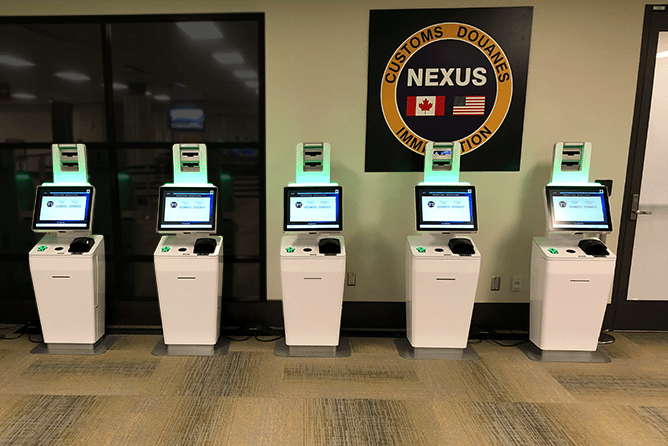

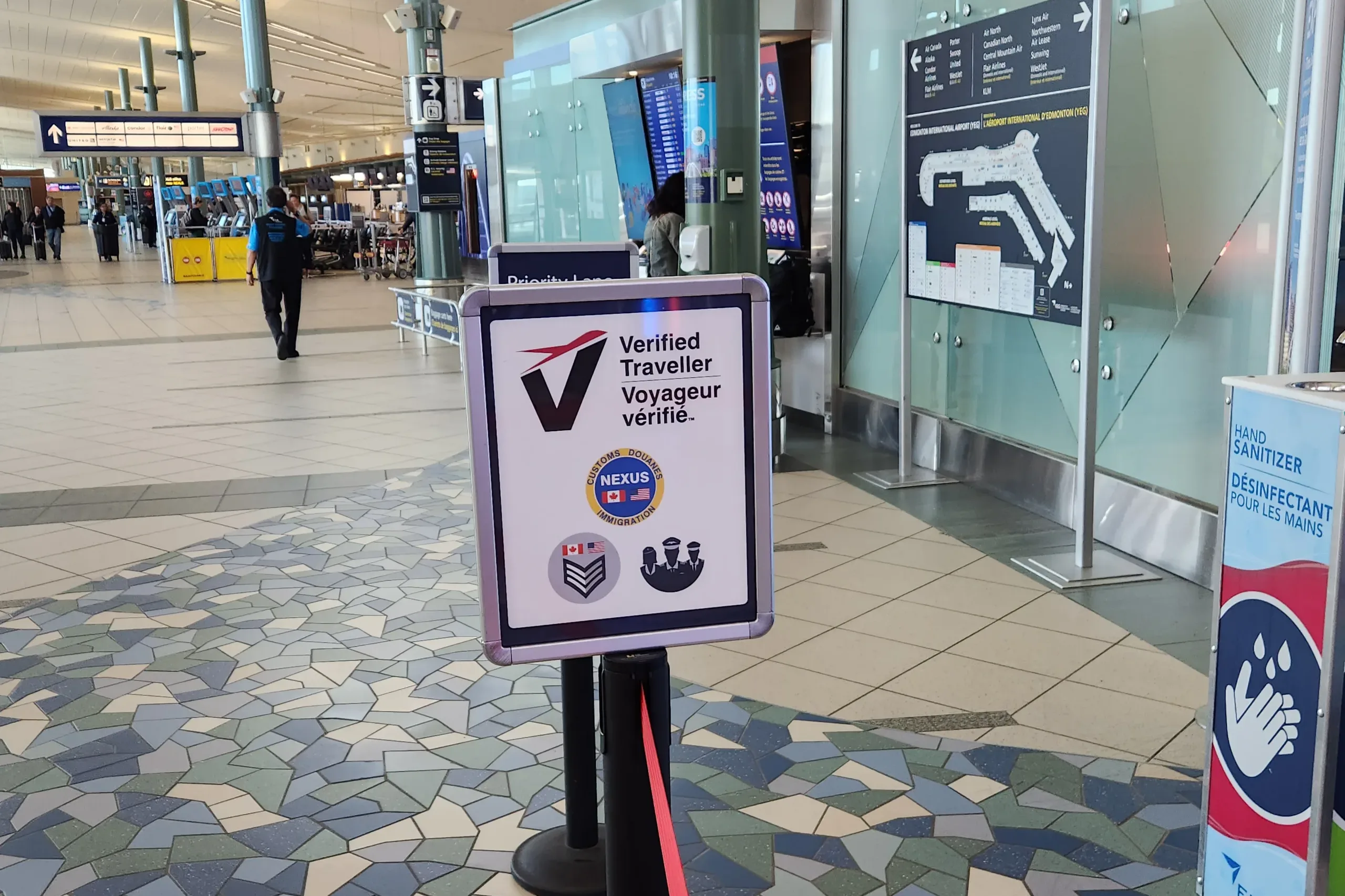



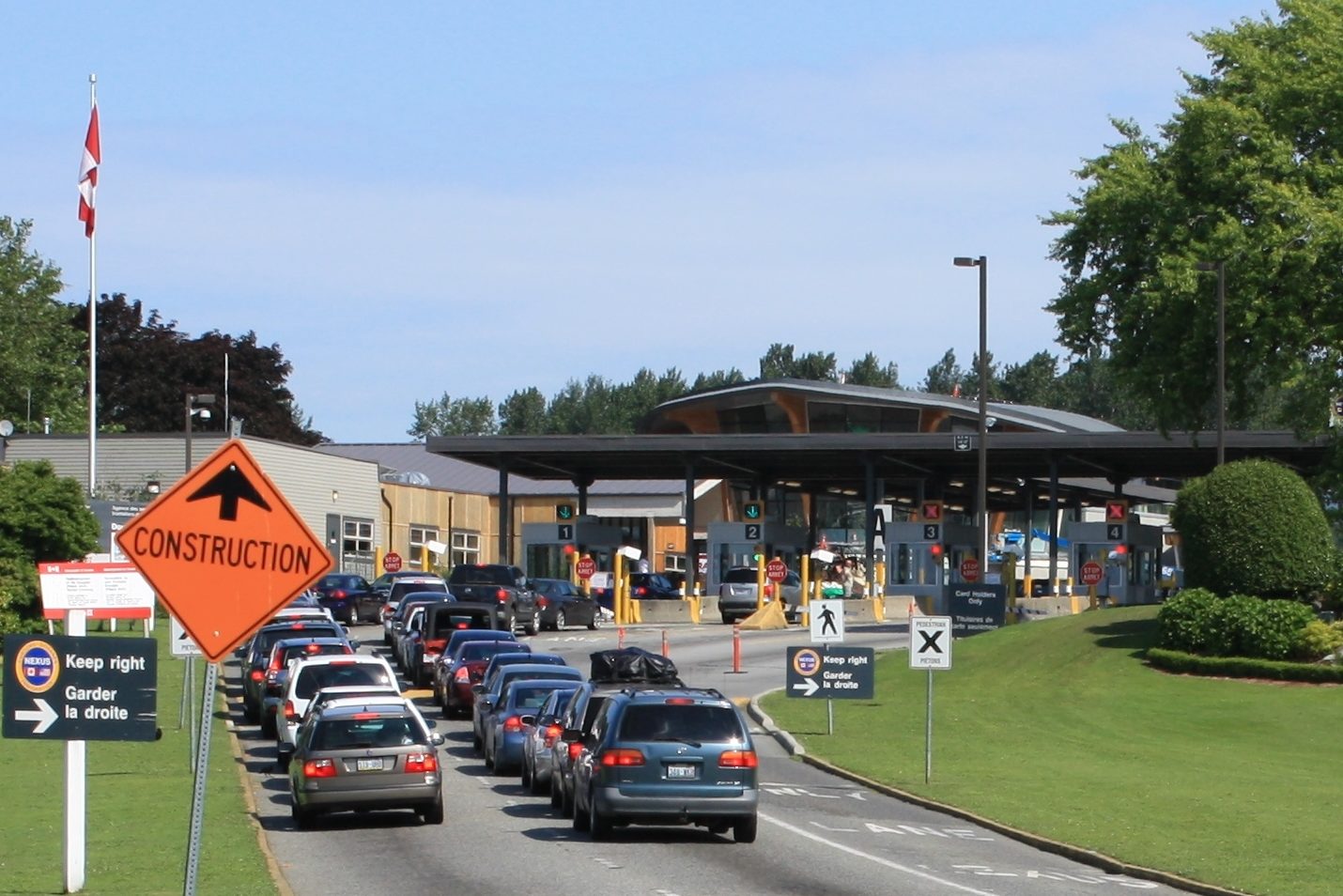
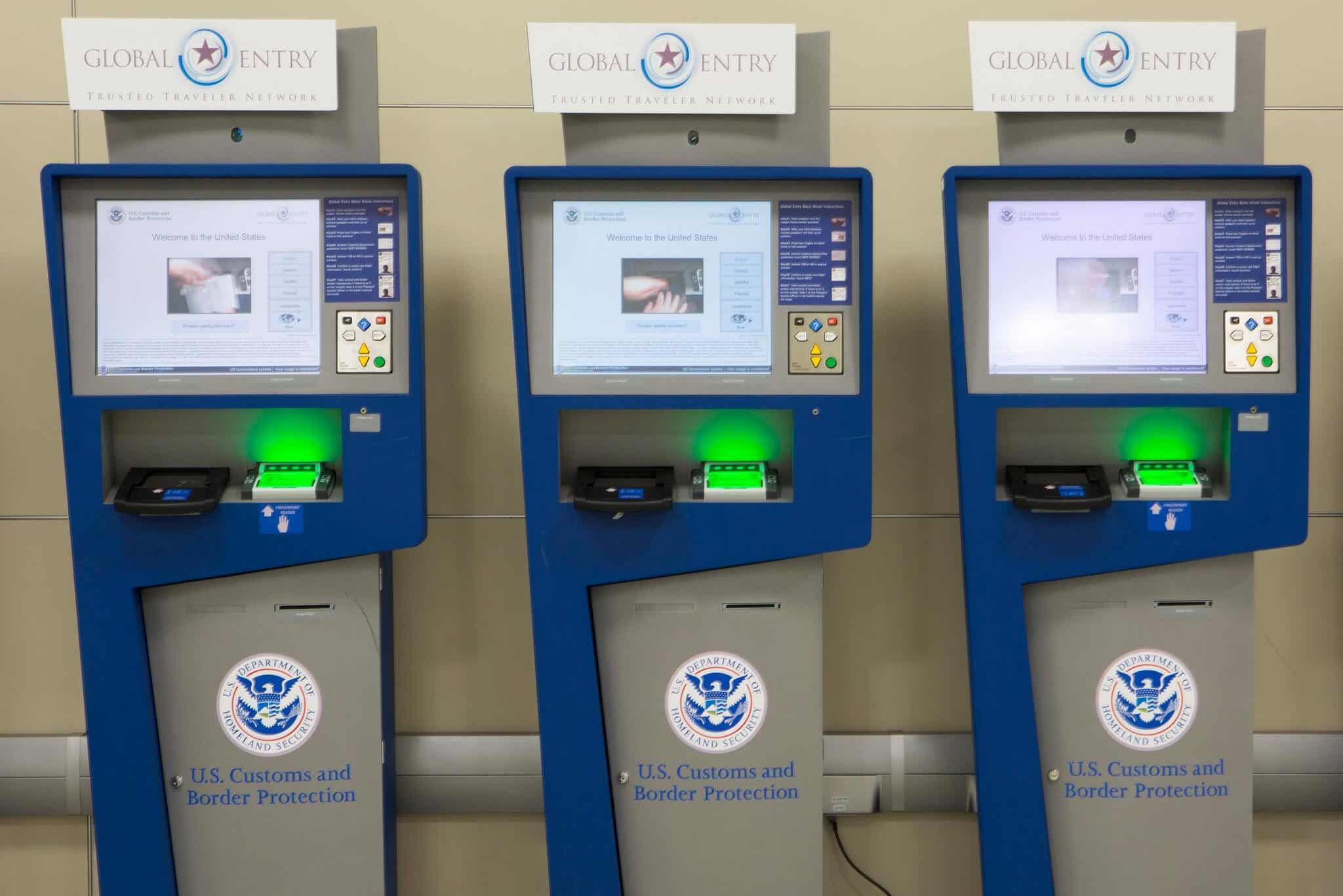
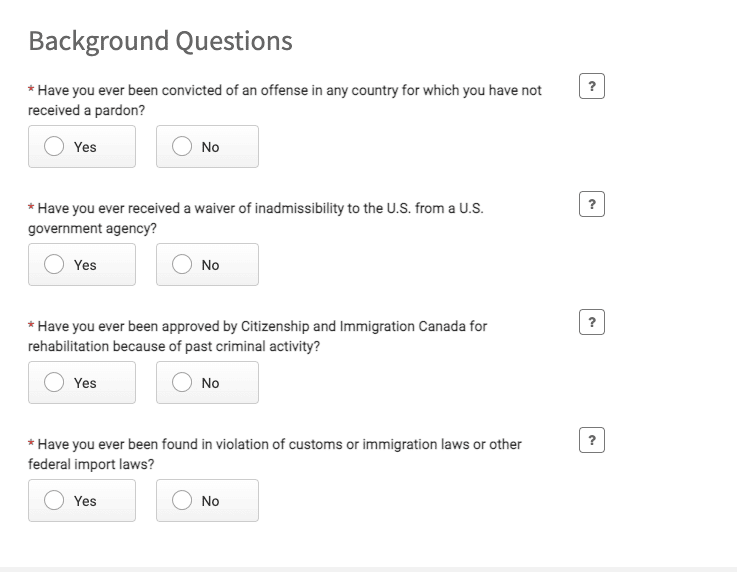

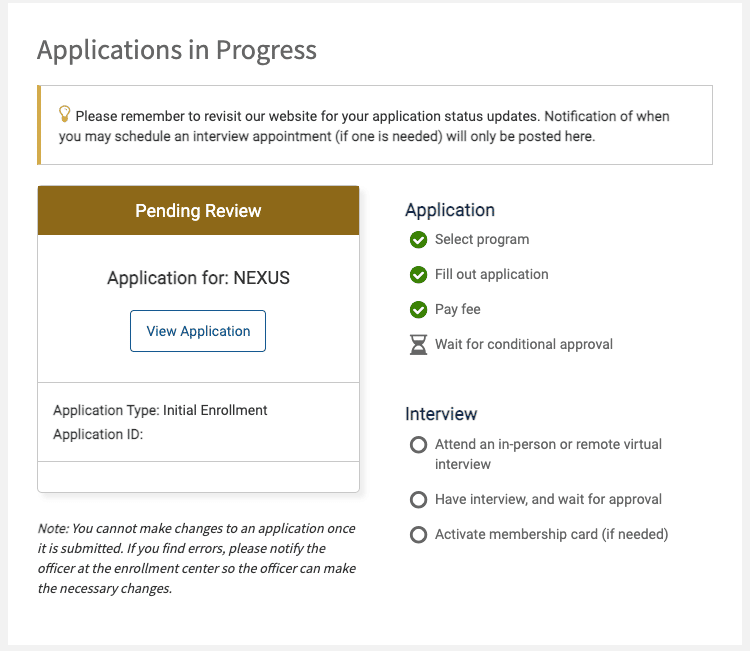


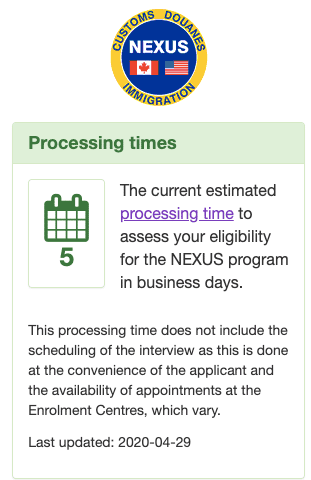




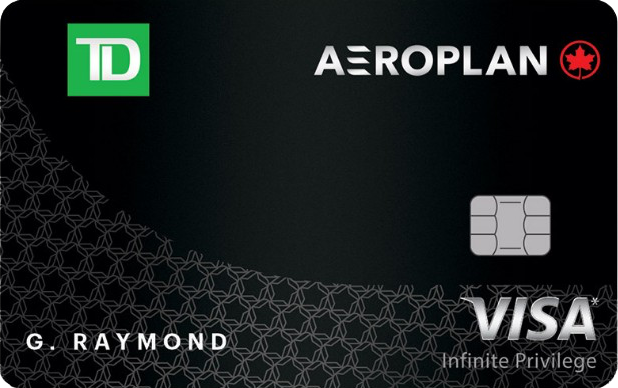
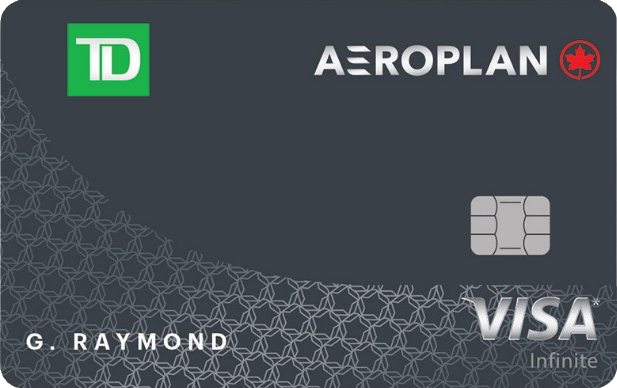
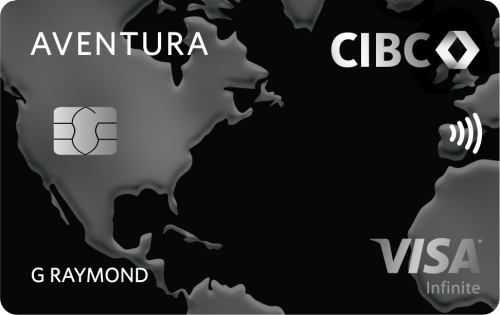
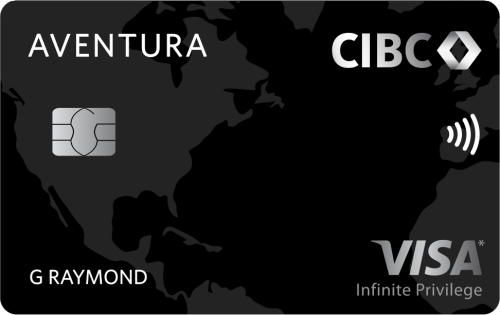
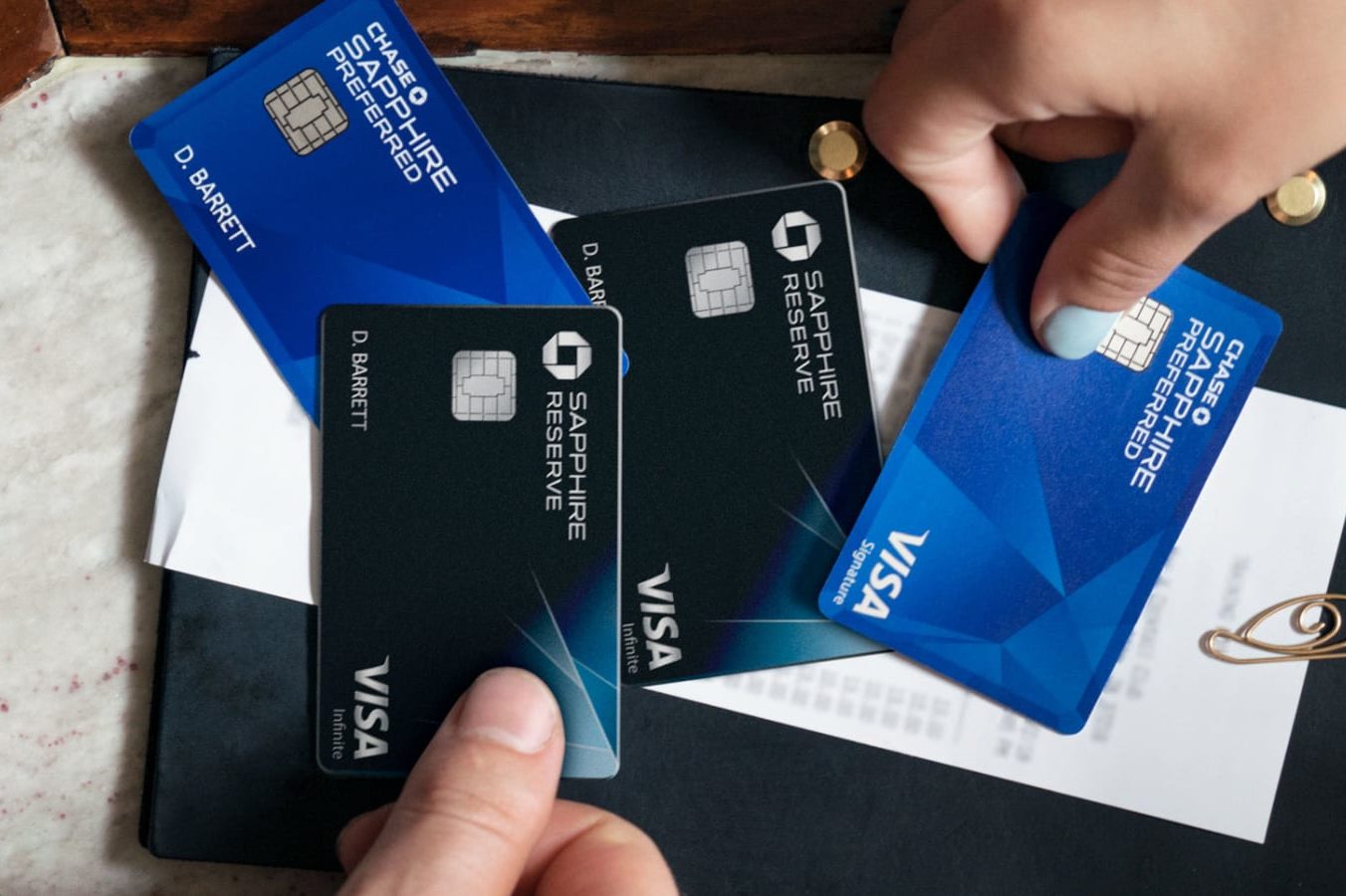













My Nexus expired on in December, couldn’t renew, because I had changed employers. I reapplied in January required and am now told it’s a 3 year wait.
Why would you publish an article about this now? Hundreds of thousands are waiting for applications to be processed and Pearson airport rated as worst in world.
What’s next an article on the new bathrooms at gate 99 at pearson.
I registered for Nexus and got my conditional approval way more than 730 days ago. Did they suspend the expiry while it was impossible to get an interview? My account does not say anything about my conditional approval expiring, and I was able to set up an interview just fine as early as I could, which is next month, basically over 850 days after being conditionally approved.
I can confirm that all went well despite being past the two years.
My 730 limit was fast approaching so I gave in and booked the appointment at Pembina ND. The interview went smoothly and I received my card in 5 business days.
Some smaller Canadian airports have a NEXUS lane that’s best avoided (hello YYJ). The wait is longer and you still have to take off shoes and belt.
Doesn’t the AMEX Personal Platinum card also provide a $100 rebate for every 4 years?
Definitely does. Used it both on my Aeroplan Reserve and Personal Platinum to cover our fees at home!
I’m almost 8 months and still waiting for conditional approval. It’s a great system.
Shame on you Ricky. Do they pay you a commish. Nexus is a joke. Rarely saves you time. My renewal lapsed by a month 3 yrs later they have my money for 3 yrs but still not open for the interview to complete my application. A debacle like passport renewal and even flying anywhere these days with all the cancelled flights. Ricky get a real day job and stop promoting travel until sanity returns in a few years
TSA pre is not included if you are PR of Canada and your passport doesn’t allow TSA enrollment
If you are renewing your Nexus you can also have the renewal fee covered by your credit card.
I’ve been trying for a renewal. No joy getting an appointment. Could they really let it expire when you can’t get in? Hoping for Canadian offices to open as I have no car either!
When I renewed, I didn’t need an appointment.
Interesting, and odd. I am told that I need an appointment even though I’ve had a Nexus card since the first year they were offered. — in the last century!
Don’t forget about Enrollment on Arrival for Global Entry.